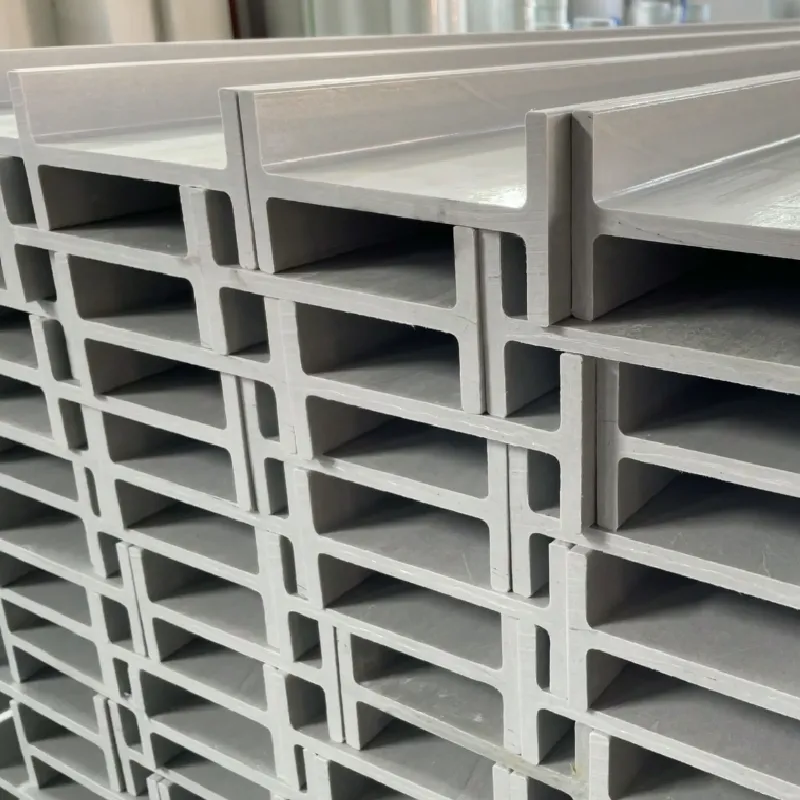loading...
- No. 9, Xingyuan South Street, Dongwaihuan Road, Zaoqiang County, Hengshui, Hebei, China
- admin@zjcomposites.com
- +86 15097380338
- Welcome to visit our website!
frp tank and vessel
The Significance of FRP Tanks and Vessels in Modern Industries
Fiberglass Reinforced Plastic (FRP) tanks and vessels are becoming increasingly significant in various industries due to their unique properties and advantages over traditional materials. With the growing demand for durable, lightweight, and corrosion-resistant storage solutions, FRP provides an innovative alternative to metal and concrete structures.
What is FRP?
FRP is a composite material composed of a polymer matrix reinforced with fibers, usually glass. This combination gives FRP exceptional strength and durability while remaining lightweight. The properties of FRP can be tailored during the manufacturing process, allowing for a range of specifications suitable for different applications. These characteristics make it especially useful in environments where traditional materials may fail.
Advantages of FRP Tanks and Vessels
1. Corrosion Resistance One of the standout features of FRP is its resistance to corrosion. Unlike steel, which can rust and deteriorate when exposed to moisture and chemicals, FRP remains unaffected in harsh environments. This makes FRP tanks ideal for storing aggressive chemicals, wastewater, and other corrosive materials.
2. Lightweight Construction FRP tanks are significantly lighter than their metal counterparts. This lightweight nature not only makes transportation and installation easier but also reduces the structural load on supporting frameworks. This factor is crucial in industries where weight limitations are a concern.
3. Customizability FRP can be manufactured in various shapes, sizes, and specifications. This flexibility allows industries to design tanks and vessels that meet their exact needs, optimizing space and functionality. Custom features such as manways, nozzles, and other fittings can be integrated seamlessly during the manufacturing process.
frp tank and vessel

4. Low Maintenance Costs The durability and corrosion resistance of FRP lead to lower maintenance requirements compared to metal tanks, which may require regular inspections, coatings, and replacements. Industries can save substantially on long-term operational costs.
5. Thermal Insulation FRP exhibits good thermal insulation properties, which can be advantageous in applications requiring temperature regulation. This quality helps in maintaining the integrity of the stored contents and can improve energy efficiency in certain processes.
Applications of FRP Tanks and Vessels
FRP tanks and vessels are used in various industries, including
- Chemical Processing Essential for storing and handling corrosive chemicals safely. - Water Treatment Ideal for basins, storage tanks, and filtration vessels in municipal and industrial water treatment facilities. - Pharmaceuticals Ensures the safe storage of sensitive materials while meeting hygiene standards. - Oil and Gas Employed in chemical storage and processing due to their durability and resistance to harsh substances.
Conclusion
The rise of FRP tanks and vessels signifies a shift towards more efficient and resilient materials in industrial applications. Their unique properties not only improve safety and reduce operational costs but also contribute to environmental sustainability by minimizing leaks and spills associated with traditional materials. As technology advances, the use of FRP is expected to expand even further, establishing it as a cornerstone material in modern industrial practices. Whether for chemical storage, water treatment, or other applications, FRP tanks and vessels offer a robust solution to meet contemporary challenges in various sectors.
-
The Rise of FRP Profiles: Strong, Lightweight, and Built to LastNewsJul.14,2025
-
SMC Panel Tanks: A Modern Water Storage Solution for All EnvironmentsNewsJul.14,2025
-
GRP Grating: A Modern Solution for Safe and Durable Access SystemsNewsJul.14,2025
-
Galvanized Steel Water Tanks: Durable, Reliable, and Ready for UseNewsJul.14,2025
-
FRP Mini Mesh Grating: The Safer, Smarter Flooring SolutionNewsJul.14,2025
-
Exploring FRP Vessels: Durable Solutions for Modern Fluid HandlingNewsJul.14,2025
-
GRP Structures: The Future of Lightweight, High-Performance EngineeringNewsJun.20,2025
